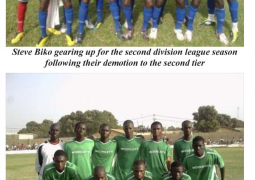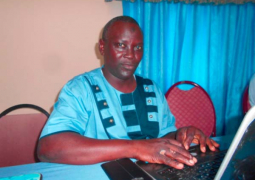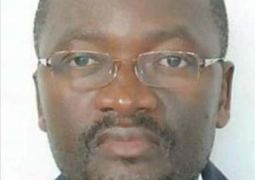Being led by Kebba Sanyang, his counsel, Mr Nyangado told the tribunal that he was the head of department before Kebba Sima, and his salary was higher than Mr Sima’s salary.
He confirmed that he responded when he was served with the notice of redundancy, adding that he replied via an email within seven days and wrote a petition to the Executive Director, Omar Badjie, querying the redundancy.
Mr Nyangado further testified that he could remember giving his counsel the email, and that Mr Badjie also responded, adding that he was communicating to Mr Badjie about the redundancy.
At this juncture, the said email was shown to him by his counsel to identify, which he did.
Kebba Sanyang then applied to tender the email.
The defendant’s counsel, Hawa Sisay-Sabally, did not raise any objection to tendering of the email document.
The tribunal consequently admitted the document.
Kebba Sanyang reminded Mr Nyangado that he told the tribunal that the email was in relation to the redundancy.
He then asked him whether if he saw a copy of the petition he said he wrote to the Executive Director, querying the redundancy, he would be able to identify it, and Nyangado said he would be able to do so.
He said he has the original copy, but it was not with him at the tribunal, adding that if he was given the opportunity, he would be able to produce it for the tribunal.
He further testified that he had sent copies of the petition to the relevant ActionAid staff and the board.
Mr Nyangado informed the tribunal that he was making an amended D3,887,174 claim, adding that he arrived at the figures by looking at his entitlements and did some calculations to be able to reach the figures.
He further stated that at the time he was made redundant, he was 57 years old and was yet to reach retirement.
Responding to a question asked by Kebba Sanyang, Mr Nyangado told the tribunal that he made a record of his entilements, and that he made some copies.
He adduced that he was undergoing medical treatment when he was made redundant, both in The Gambia and Dakar, and that ActionAid was aware of this.
He said ActionAid paid 75 per cent, and he paid 25 per cent of the cost of the medical treatment, adding that he has documents relating to the treatment.
Mr Nyangado revealed that for the first treatment in Dakar, he went with ActionAid’s vehicle, adding that the second time was by plane when he realized that transportation by land was much more expensive, and that ActionAid paid for the air-ticket.
He testified that the third time he went by his vehicle, which would not cause the ActionAid driver anything, adding that at the time of his redundancy, the treatment was not completed.
The case was then adjourned to 3rd March 2015.





